Dedrick Family
My husband and I both felt called to foster care at the same time. From what we hear, this is unusual. In married couples, one spouse is usually pulling the other to pursue foster care...



Family, belonging, acceptance, love -- the stories below come from foster families across the state of Virginia. These Virginians share the true stories of how families were started, reunited and strengthened through foster care and adoption.
To learn more about becoming a foster parent, visit FosterVA.com or call 1-888-2Foster.
Dedrick Family
My husband and I both felt called to foster care at the same time. From what we hear, this is unusual. In married couples, one spouse is usually pulling the other to pursue foster care...
Ring Family
I met 7-year-old Brooklynn in 2015 when I was a family services specialist working on her case. At the time, I did not know that Brooklynn would play a significant role in my life...
Zaborowski Family
Infertility brought us to adoption, and adoption brought us to fostering. An open, healthy relationship with our adopted son's first family introduced us to the world of foster care...
Tremper Family
The most rewarding aspect of fostering has been watching trust be built, slowly, and to see potential realized for the kids in our care...
Tran Family
There is nothing more beautiful than showing love to a foster child's biological family during their time of crisis. The most rewarding part of fostering for us is to see children successfully reunite with their families...
Sprout Family
We've been foster parents since 2018. During that time, we've had multiple children in our home, including a three-year-old we've adopted, and a 17-year-old whom we are in the process of adopting...
Dysterhouse Family
I have always wanted to foster, but my husband served 32 years of active duty with the Navy and with work travel the timing never felt right. After he retired we finally felt we were ready...
J. Davis
I became a foster parent because I wanted to become a parent through adoption, however I continued to foster because I knew my home could serve as a temporary refuge for children in need of a safe space...
Bouch Family
We have always been known to have "extra" children. Our family of eight, which includes four biological children, one adopted child, and one child in foster care...
Bailey Family
We are a family of four that chose to pursue fostering and take on some uncomfortability in an effort to live a more purpose-driven life and help our community...
Thompson Family
When I was 12 years old, my older sister and I entered into the foster care system. My mother had fallen on hard times and was no longer able to provide for the both of us. Even though I was only twelve...
Laney Family
On March 15, 2018, I entered the foster care system. I was sixteen and seeking legal emancipation. The judge ruled in favor of foster care, where I remained for six months. That may not seem long in the world of foster care...
Mapanoo Family
For nearly seven years, Joel and I have been foster parents. Fostering was a calling in our lives. It was our way to help children and families in need in our community. To us, foster parents are meant to be safe havens for children...
McKensie Family
We started our foster care journey in 2008. Our biological children were in high school and we really wanted a little one in the house with us, but our local department of social services needed foster families for teenagers...
Shonka Family
I will never forget walking out of the hospital four years ago, holding an infant carrier with a premature baby girl fast asleep in it - our very first foster care placement. The feelings of fear, anticipation, and gratefulness...
Smith Family
We first began our foster care journey out of an abundant love for children and a longing to help our community. Being able to actually reach the children that come into our home, no matter what condition they enter in...
Casper Family
From the beginning, our caseworker and foster family were supportive of the reunification process. Both were very involved, caring, and attentive to our needs as we worked to reunite our family. Our caseworker...
M.W.
I was a teenager when my struggle with addiction began. It may have been due to an unaddressed trauma and only having negative coping mechanisms, however my drug addiction led to abusing meth...
Williams Family
In August of 2017, after being homeless for three months, my children were placed into kinship care with their aunt. At times, I was not able to see my kids as I worked through the reunification process and received assistance...
Jonthan S.
Two years ago, I made the decision to get involved with drugs. I didn't care about anything else in the world except for my addiction. In June of 2019, I was arrested on multiple warrants and a drug charge possession...
Sandstrom Family
Bridget Sandstrom shares her video testimony of her road to recovery and reunification with her son thanks to help from the department of social services...
My husband and I both felt called to foster care at the same time. From what we hear, this is unusual. In married couples, one spouse is usually pulling the other to pursue foster care. But for us, we knew in November 2021 that it was time to start this journey. A foster care advocate had spoken at our church and his message was the catalyst for us. He said that not everyone is called to be a foster parent, but there is a role for everyone in foster care. It could be anything from bringing meals, to helping with yard work, to babysitting, to lending a listening ear. He displayed a graphic that showed all of these individuals coming around foster families in support. My husband looked at that graphic and he said, "You know we're the foster parents in that, right?" I said, "I know."
Two and a half years later, we are approved foster parents and have had seven children in foster care enter our home. We have three young children ourselves, so we foster the little ones. The current ages of children in our home are ages 6, 3, 20 months, 10 months, and 10 months. Yes, it is crazy. Yes, we often feel exhausted. But the support we receive from friends and family keeps us going.
Statistically, half of foster families quit within one year of serving in the role. I get it. Foster care is extremely challenging at times. We navigate so much - trauma behaviors, a calendar packed full of specialist appointments, family visits, court hearings... it's endless. And yet, thanks to an incredible network of family and friends, we keep doing it. I know that there are many people I can call on when I need help and I've learned to accept help when it is offered.
Foster care has been one beautiful, hard journey in our family. Sometimes the hard overshadows the beautiful, but the beauty always shines through in the end. For example, the day that our foster son was reunified with his father will forever live on in my memory. A sweet, perfect baby boy was able to go home with his dad and we got to witness the joyful moment in court where the decision was made and his dad cried tears of joy. That's why we keep doing what we do.
Many people question how we are able to say goodbye to the precious babies that leave our home. But I tell them that for most of our children, "goodbye" was not forever. We've been able to babysit children after they left our home because we developed trusting relationships with their families. We receive photos as they grow and we strive to keep the connections we made with kids intact. No matter if kids are in our home for a day or for several months, we hope that our love and support leave a lifelong positive impact.
Foster care is about building families up. We've seen the system work how it is intended to work and we've seen positive outcomes. While we wait for those positive outcomes, we just keep giving kids love and meeting their needs as best we can. We're not perfect, but we are grateful that we are able to be a safe place to land for kids when they need it.
- Carrie and Dustin Dedrick

I met 7-year-old Brooklynn in 2015 when I was a family services specialist working on her case. At the time, I did not know that Brooklynn would play a significant role in my life.
Years later, my wife and I became licensed resource parents. On a Friday afternoon in January of 2022, we received a call about a teenage girl in need of a foster home and initially declined. However, we continued to have a nagging feeling about the child and the following week, called to see if she was still in need of a foster home. It turned out to be Brooklynn, the same child I had encountered years before. She was now 14 years old.
At the time, Brooklynn was struggling with substance use disorder and needed to complete drug court and all services that accompany the program. After nine months, Brooklynn graduated drug court and has been sober since.
In June of 2022, we accepted the placement of a newborn named Kourtland. Kourtland came and went from our home after just one night but returned three months later.
Both girls remained in foster care with us. In the fall of 2023, the court changed their goals to adoption.
Around this time, another teen, Emma, was placed with us. Emma was almost 18 and struggled with sobriety. She began therapy and through a lot of hard work, overcame this challenge.
Despite not being free for adoption, Emma saw us as her forever family. Two weeks after turning 18, she requested with the court to have her last name changed to ours.
In March of 2024, the adoptions for Brooklynn and Kourtland were finalized and one week later, Emma's name change was granted.
We're now a family of five, and our children have hit some big milestones. Emma graduated from high school, where she was inducted into the National Honor Society. She plans to become a registered nurse. Brooklynn, who was also inducted into the National Honor Society, works part-time and is completing college courses. Kourtland is a healthy 2-year-old and enjoys spending time with her big sisters.
- Sara Ring

Infertility brought us to adoption, and adoption brought us to fostering. An open, healthy relationship with our adopted son's first family introduced us to the world of foster care and made us realize that we could make a real impact. Once our eyes were opened to the need right in our backyard, it was hard not to sign up to help our community however we could.
Though we approached our fostering journey with excitement and love, we also expected to be challenged. We thought fostering would be hard and rewarding, and ultimately it was much harder and much more rewarding that we thought. We had to ask ourselves tough questions: Could we provide temporary care? Could we love a child like our own, only for them to ultimately find permanency with another family? In particular, we were afraid of getting too attached. However, we quickly learned that this is exactly what we were supposed to do - get attached. Our foster son needed us to love him fully and unconditionally, whether he was with us for a week, a month, a year, or forever. That's what he deserved, and what our community deserved.
One of the more significant challenges we faced was managing behaviors that stemmed from trauma. We addressed this by receiving training from our county, with a particular focus on managing and deeply understanding our foster child's emotions and past experiences. Our local DSS office helped to secure daycare and therapy for our foster son, which proved extremely beneficial.
We also learned to have patience, which is difficult some days in foster care. We had to not only advocate for our foster son's needs, but be patient with the system as they carefully peeled back the layers of a family in need. Our local DSS felt accessible whenever we needed them. If our social worker wasn't available, the supervisor or another worker was able to help. The greatest support, by far, was the foster parent support group that our agency provided monthly - here, we got to know the other foster families in the county and offer support to one another.
Exploring foster care was a series of "yeses." Can we go through the foster parent training process? Yes! Can we parent and love a child that's not biologically ours? Yes! Can we love and support their birth family, too, in the process? Yes!
Foster care naturally comes from a place of sadness and loss. Reunification, not adoption, is the first objective. However, after fostering our child for two years, his placement plan goal was changed to adoption. DSS asked if we would adopt him, and of course we said yes. He was so much a part of our family that we couldn't imagine him with a stranger.
His great grandmother was at the adoption finalization. We had always maintained a healthy relationship with his first family, and his great grandmother was a strong advocate in his life. She was at the table in front of the judge when he legally and permanently became our son, and we remain so grateful for her relationship and support.
- Autumn and Jim Zaborowski
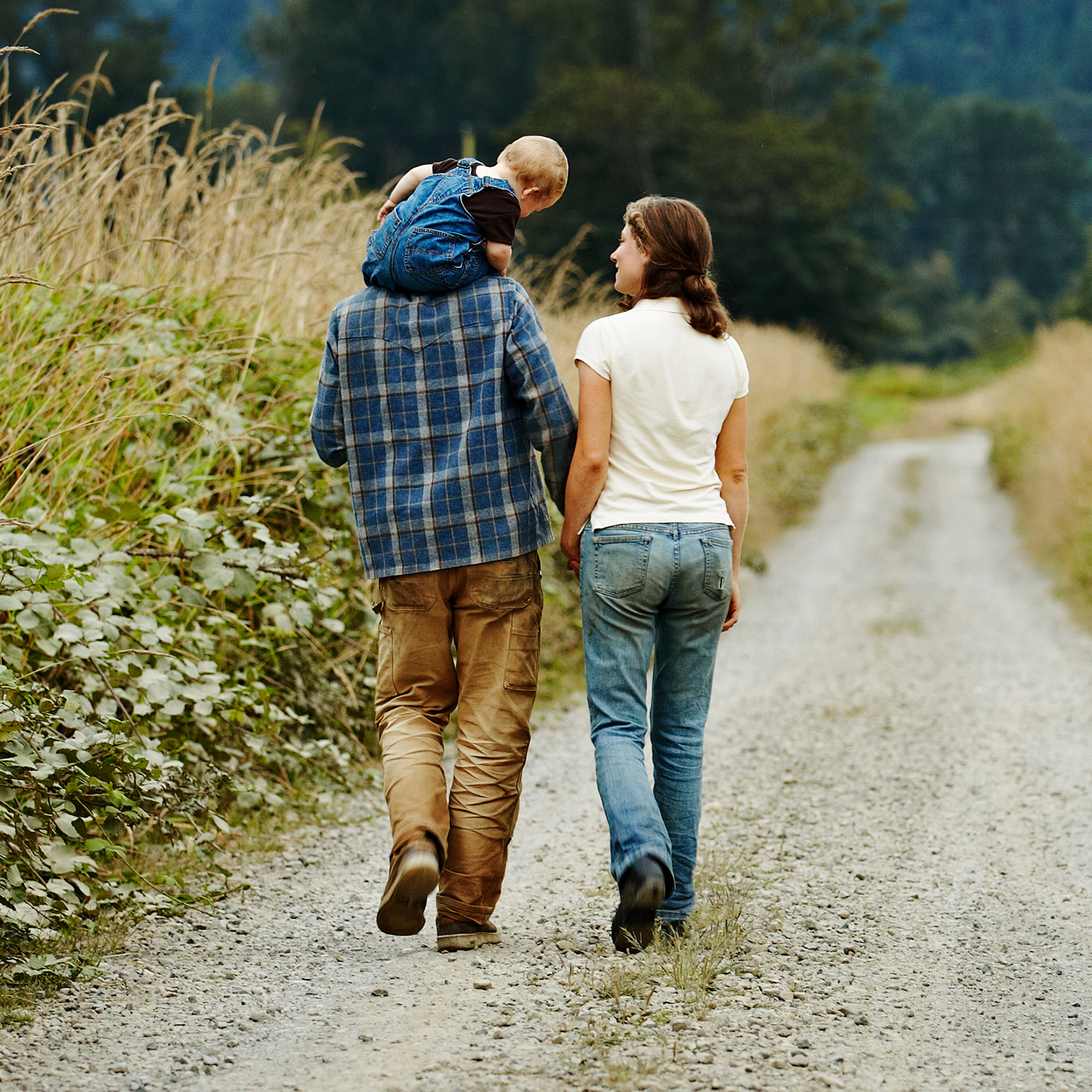
The most rewarding aspect of fostering has been watching trust be built, slowly, and to see potential realized for the kids in our care.
We have learned so much about trauma and brokenness and also about trust and belonging. My eyes have been opened to the needs within my own community and it's compelled me to regularly advocate and raise awareness with others around me.
I believe the most important role of a foster parent is to be a soft and safe place for a child who is displaced and experiencing trauma. It's important that we are looking to meet the needs of the child and not focused on our own hopes and desires in the situation.
Fostering and adopting can be so rewarding and add joy and value to your family in unexpected ways, but adding children from hard places into your home can't be about you or what you may gain. The needs of the child must come first.
Our children include three biological kids and two kids adopted through foster care. We adopted our oldest child as a teen from foster care who makes us immensely proud by breaking generational cycles every day!
I think it's important for people to understand that there is alway a need for good foster families, but that's not the only way to support kids in foster care. Not everyone is called to foster or adopt, but everyone is capable of doing something to support kids, families, or social workers so that the outcomes and experiences of kids in foster care are improved.
- Kevin and Lauren Tremper
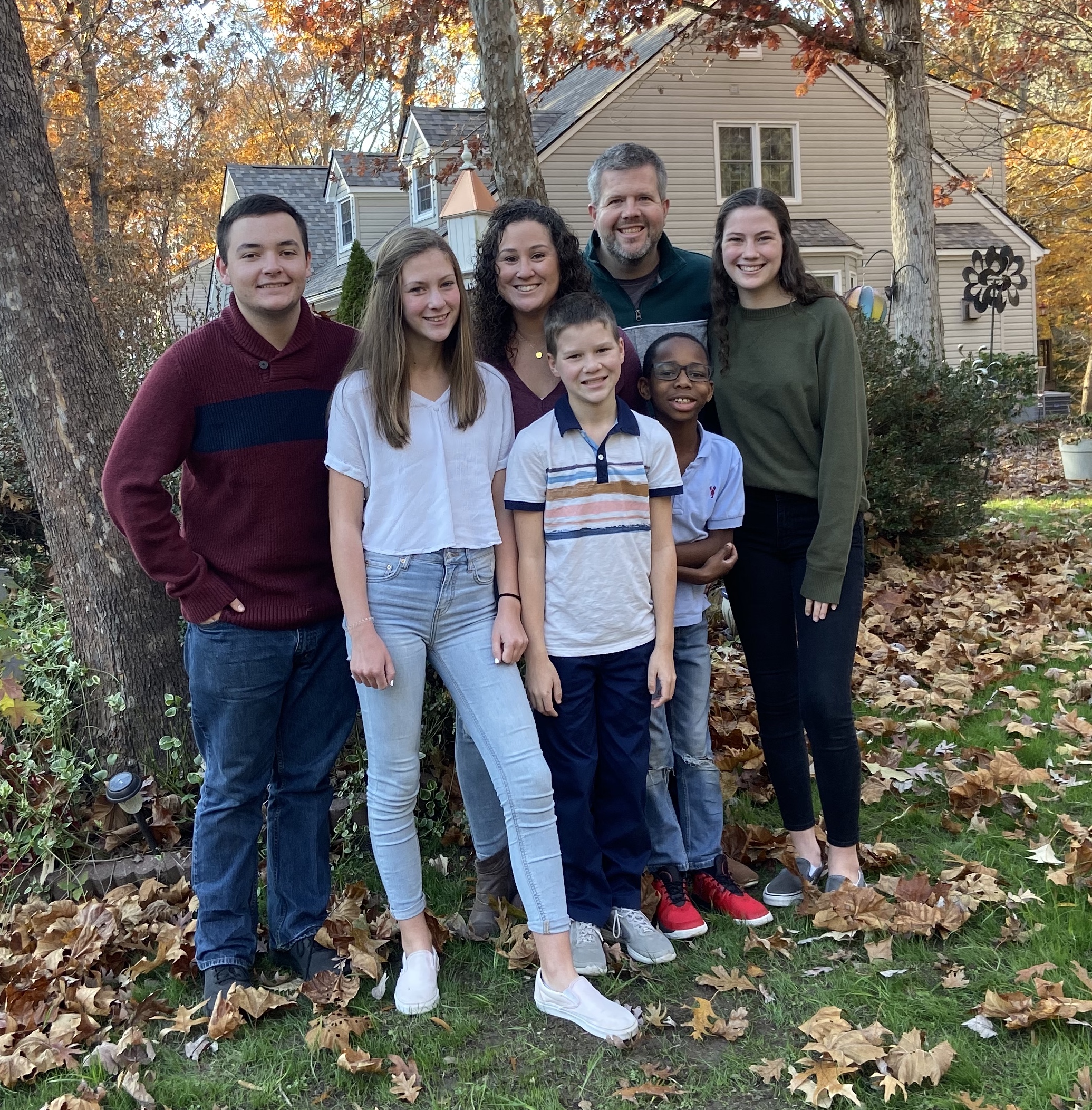
There is nothing more beautiful than showing love to a foster child's biological family during their time of crisis. The most rewarding part of fostering for us is to see children successfully reunite with their families.
I (Olivia) was raised in a family that participated in foster care when I was a young child and I had three different siblings through the Williamsburg foster care system. That experience shaped my heart and character. As parents, we wanted our biological kids - two young children and another on the way - to have the same experience of opening their home to others who need a family. Fostering has changed our lives by making us more flexible and prepared. You never know when you will get a call that will completely change your family's life for the next few weeks, months, or even years!
Our friends, family, and church community provide tremendous wrap-around care, without which, fostering would not be possible for us. While fostering is hard, it will be rewarding if you take advantage of all the opportunities to advocate for the children in your care. We also intentionally cultivate a positive relationship with a child's biological family. I can't imagine anything scarier than having my children put in a home where I don't know a thing about the people taking care of them. So, as foster parents, our greatest successes come when we can show love to the entire family.
With the support of their social workers, we have found that sending photos between children and their families is a great way to keep them connected. You can even print out a photo of their family and put it by their bed, which children often appreciate. Another way to foster a child's connection to their family is by sending their artwork from school to visitations, so that they can give them to their parents. Children love doing that.
Once a child has been reunited with their biological family, we have visited them and maintained contact, which is not only impactful to us and our biological children, but also meaningful to the child we fostered. We also love to stay connected by sending pictures back and forth with their family and sending them birthday gifts each year.
It's important to remember that, of course, it can be difficult being part of a team of people and professionals that support a child. We all want the best for the child and to help, and it can be a hard journey at times. Miscommunications happen in the world of foster care, as in all other areas of life. So be humble, passionate, and always ask for clarification when you are unclear about the plan or a certain issue. Foster parents are valuable and important members of the team and, outside of his or her own family, they know the child the best. I encourage foster parents to speak up, because they can provide insights to the team that no one else can.
We believe that the heart of foster care is reunification, either with the parents or another family member. When you can recognize how powerful it is for biological families to successfully reconcile and raise their children, you can begin to see that truly loving a child sometimes means letting the child leave your home and return to their biological family. If you share this same heart - to see children successfully reconciled with their family through community support - then fostering is for you!
- Joshua and Olivia Tran

We've been foster parents since 2018. During that time, we've had multiple children in our home, including a three-year-old we've adopted, and a 17-year-old whom we are in the process of adopting. What sets us apart is our desire to work with biological families - to encourage and motivate them, and ultimately reunite our foster kids with their parents.
We've tried our best to be lifelong connections for every child who has been in our home. To keep families connected, we allow unlimited face-time when appropriate with parents and extended family members. And we've allowed custody petitioners from another state to stay in our home to build a closer relationship with their foster child. We've also babysat foster siblings, to assist families and keep siblings connected. We have cookouts for parents to see their children in a less formal or intimidating way. And we've become advocates for children, afraid to fight for what is best for any child in our home.
I (Kelly) have assisted in the training of other resource parents and have taken the time to learn more policies and procedures to become a better resource. Although we almost never say no to a new child in our home, we have started to shift our focus to assist other resource families and to come up with more creative ways to assist families and children in our community. We aim to be a living example of the things we teach and hope for from all families.
- Robert and Kelly Sprout
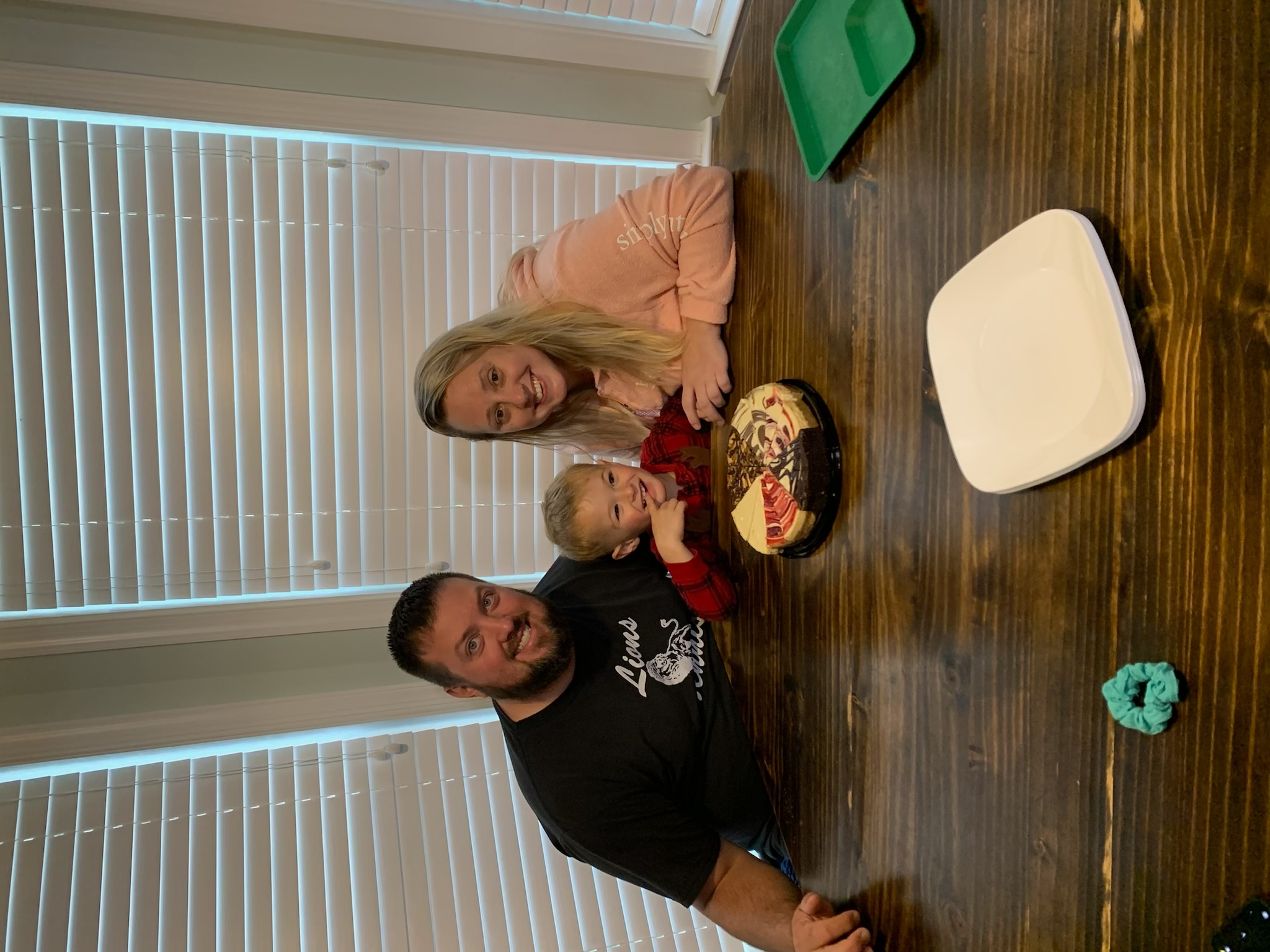
I have always wanted to foster, but my husband served 32 years of active duty with the Navy and with work travel the timing never felt right. After he retired we finally felt we were ready to start this journey. Our goal going into it was to provide a home for siblings to be able to stay together. In our four years as foster parents we have had 14 placements, both siblings and individual kids. All of them have been amazingly resilient.
The most rewarding part of fostering is coming alongside a family that just needs a reset and offering to help with the children while the parents get the assistance they need to regroup.
For those considering fostering, my advice is to show the biological family grace. You haven't walked in their shoes, and you don't know what led them to where they are. Be kind, and help the family to understand you are on their team - that you are not the competition.
That's why our greatest success as foster parents has been supporting reunification. It is a beautiful thing seeing a parent work so hard to get all those boxes checked and finally reach their day in court when they show the judge they are ready to have their kids back.
To help our foster children stay connected with their families, we would laminate pictures of their family and put them in their cribs or place them by their high chairs so they could see their loved ones every day. Even if they didn't have visitation on a particular day, we would talk about their family.
Once a child reunites with their biological family, I look forward to the first day of school. It's always my favorite time because my phone buzzes all morning with first day of school pictures from their family.
Being a foster parent is a roller coaster ride. You learn to expect the unexpected. Cases never go as planned, and you just need to be flexible and to provide support whenever and however it's needed. Having a solid team to help when you get new placements is key.
Finally, it's critical to ensure you're taking time to keep your biological family unit in a good place. Make sure your kids are being heard, and that your spouse is feeling supported.
It goes back to the oxygen mask on the airplane analogy; you can't help others if you're not helping yourself.
- Rick and Robin Dysterhouse
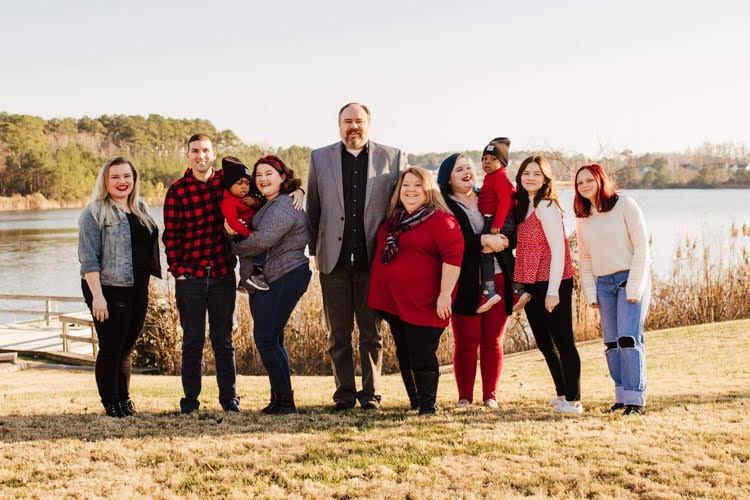
I became a foster parent because I wanted to become a parent through adoption, however I continued to foster because I knew my home could serve as a temporary refuge for children in need of a safe space.
Fostering has made me more sensitive to the struggles of humanity, and how generational cycles, trauma, and negative exposure influence a person's behavior. I have more compassion for people because I realize there could be factors in play much bigger than them that lead them to make a bad choice in a single moment.
That's why the most rewarding part of fostering has been watching the children who've come through my home grow emotionally, mentally, and physically. From a premature baby gaining weight and exceeding the doctor's expectations to a teenager learning how to prepare meals on the stove - those are my rewards as a foster parent.
Being a single foster parent, I would say to anyone considering it to ensure you have a community willing to support you and the children before you start. Expose yourself to the world of foster care by tapping into resources like reading books and listening to podcasts and connect with other foster parents. I am thankful for my village. My greatest success as a foster parent has been in choosing to parent when I wanted to quit. I try to stay steadfast in my desire to parent to the best of my ability without the pressure of looking for success by way of big changes - in the child, their family, or the foster care system as a whole. I win just by showing up every day as the best version of myself.
That's why I believe the most important role of a foster parent is to be quick to understand and slow to judge - the child, their family and yourself. I've learned to give everyone involved as much grace as I can muster. My role is to provide an environment where a child can heal, grow, and explore in peace, and to feel all the emotions with them
I believe it's important for people to know that foster parents are humans. Our hearts are not "special" so we feel all the emotions that come with fostering - from joy to pain. I am a single foster parent who works full-time and runs a separate business. We need more people (married, single, or otherwise) willing to feel all the emotions and become foster parents.
- J. Davis
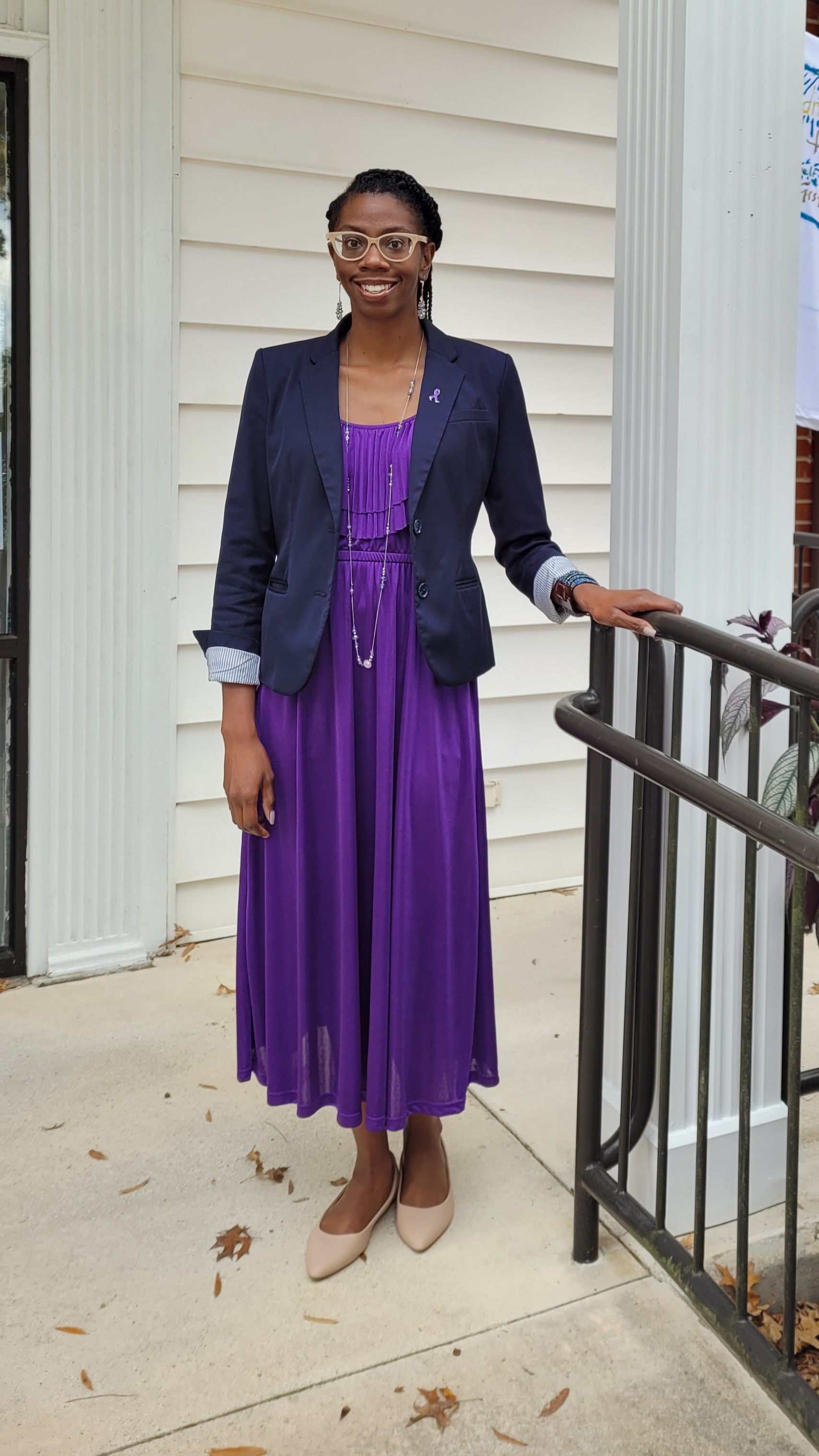
We have always been known to have "extra" children. Our family of eight, which includes four biological children, one adopted child, and one child in foster care, extends way beyond blood. Becoming a foster family was a decision we made as a family. We feel so blessed to share such a strong bond and love for one another that we wanted to share what we have with others.
My advice for those considering fostering would be to follow your heart. Get attached. Many people don't take the step to foster because they are afraid of how it will feel when the child eventually reunites with their family, but these are exactly the people who should foster; the ones who are afraid of heartbreak. Each and every child deserves someone who is going to love them so much that the thought of losing them hurts. That is what parenting is. The beauty of this situation is that if you establish a good relationship with the biological family, you will likely never have to say goodbye. They all become a part of your family.
That's why it's very important to us that children placed in our home stay connected with their biological family. We have done this through regular visits, phone and video calls, and sharing photos and text messages. We also display photos of their family in our home and include them in our daily prayers.
Ask anyone who has fostered and I doubt that you will find someone who says they regret investing in a child's life.
- Terry and Johnetta Bouch
We are a family of four that chose to pursue fostering and take on some uncomfortability in an effort to live a more purpose-driven life and help our community. A motto in our home is "we are blessed to be a blessing," and in alignment with our Christian values, we needed to look for ways to bless others.
A cornerstone of developing a deep connection with our current foster daughter has been how we treat the relationship with her biological father. We work hard to involve him as we consider him a co-parent. We communicate back and forth on parenting strategies that have been effective since his daughter has been in our home. We also take and share pictures, offer praises about his daughter's wins and accomplishments, and ask his perspective on things.
We are proud of the relationship we have built. Much of this is because of the father's personal progress and positive attitude towards us. We are thankful for the "team" atmosphere we've all created through this partnership together.
In doing so, we have also earned our foster daughter's love and trust; trust that we aren't going anywhere; no matter what she does, she's loved the same. She also knows we do what we say and say what we mean, and that there isn't anything to be scared of in our home. Her father has even commented on how she now has her positive, funny, silly personality back. Seeing this child shine and flourish has been a huge encouragement that we are supporting her in the ways that she needs during this period of her life.
Advice we'd offer to anyone considering becoming a foster parent is to be open to the fact that typical parenting strategies may not work for children in foster care. You will hear about it in training, but these kids have been through more than a lot of us will ever endure in our lifetimes. As a result, they more than likely haven't learned appropriate ways of dealing with trauma. It's very important to consider their history. In addition, surround yourselves with mentors. There are many times we bounce parenting strategies for specific situations against our mentor group. We couldn't imagine trying to do this work alone. Finally, don't be afraid to "tap out" when you need to and have your spouse step in or just take a night for respite. We weren't meant to carry loads alone.
- Warren and Emily Bailey

When I was 12 years old, my older sister and I entered into the foster care system. My mother had fallen on hard times and was no longer able to provide for the both of us. Even though I was only twelve, I understood that my mother was not a bad person, she just needed time to pick herself back up.
My sister and I were placed with a family of five: a couple and their three younger children. From the very beginning, our foster parents made efforts to partner with our biological parents. They communicated with our parents about our health and behaviors, checking in regularly with our mother through phone calls and visits. At the time, our mother worked two jobs so visits were more difficult, but our foster parents and mother tried to make visits as regular as possible. They prioritized our time together because it was in the best interest of my sister and I to maintain that relationship.
Our foster parents understood the importance of keeping a connection with our birth family and keeping a connection to our culture. Although they were not Hispanic or Latinx themselves, our foster family made a point to learn Spanish and even learned to make Spanish foods. They celebrated our Hispanic culture with us - together, as a family.
When I was 17, I asked my foster parents to adopt me. My sister and I had lived with them for nearly our entire foster care journey. After consideration, our foster parents decided that it was in our best interests to be adopted. I was able to maintain a positive relationship with my mother and had the full support and encouragement of my now-adoptive parents.
At the end of the day, I think that encouraging and supporting a strong and positive relationship with birth families keeps children in foster care connected with who they are and where they come from. My adoptive parents and mother now have a relationship in which they extend invitations to parties and graduations just to spend time together. My sister is living with our adoptive parents in Florida and we all talk regularly. I am now living with my mom and 4-month-old sister in Northern Virginia while I finish my college degree.
- Monica Lizama Thompson
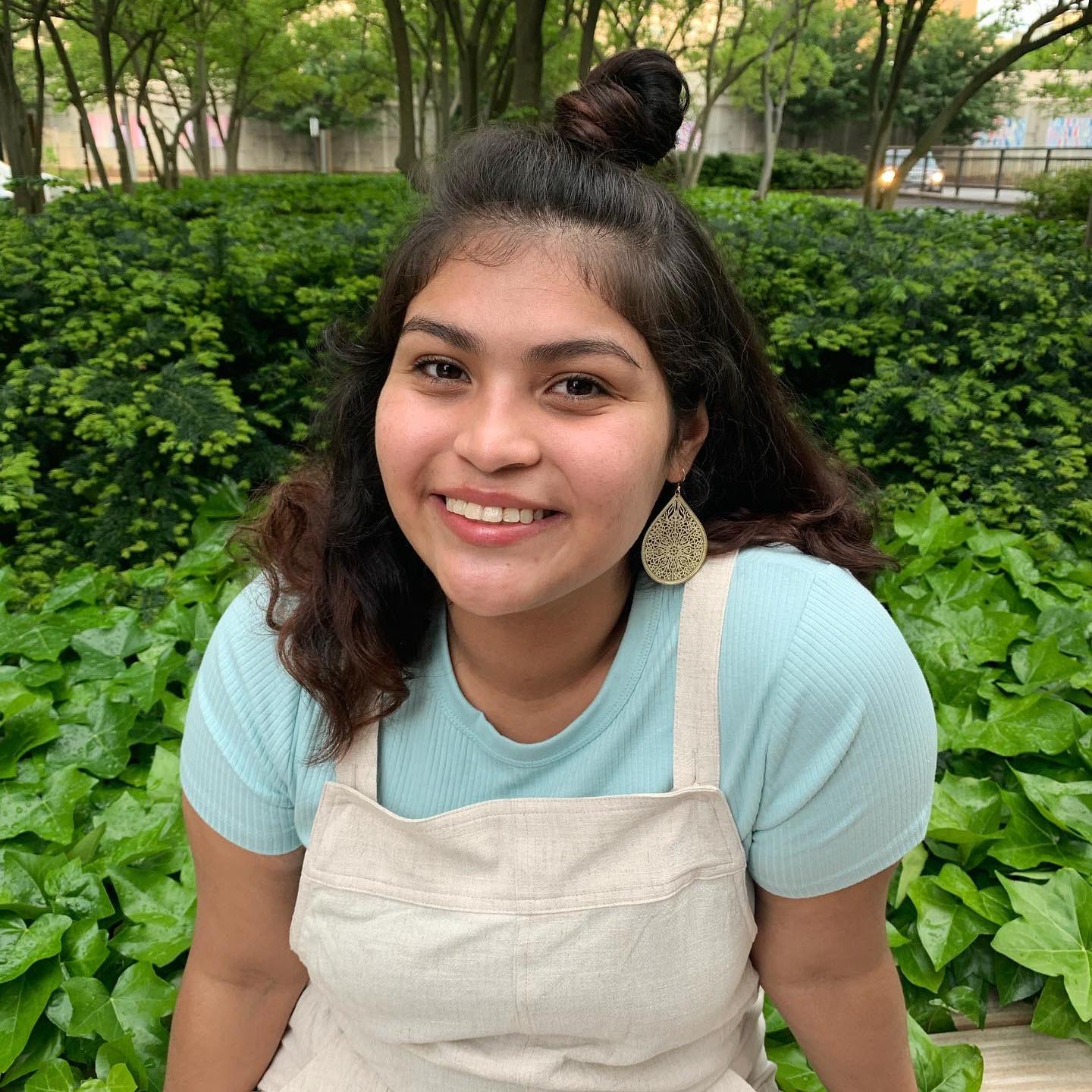
On March 15, 2018, I entered the foster care system. I was sixteen and seeking legal emancipation. The judge ruled in favor of foster care, where I remained for six months. That may not seem long in the world of foster care, but for me, it was a really long time. When I was first introduced to my foster family, I was nervous and scared. I didn't know who they were or how they would treat me.
As I was adjusting to my new life with my foster family, my social worker encouraged me to consider reunification with my mother. We were estranged and I was reluctant and hesitant to move forward with that process, but with the support and encouragement of my foster parents, I was able to rebuild my mother and I's relationship on my own terms. My foster family helped me learn appropriate boundaries with my mother all while giving me space to be a kid. I think that it is important for foster parents to have an understanding and positive attitude towards reunification. Being there for foster children, especially teens, means supporting potential reunification, supporting honesty, and supporting transparency.
In August of 2018, I was reunited with my mother. It has been three years since I lived with my former foster parents and we still have a positive relationship. We visit each other throughout the year, and call and text each other often. I'm currently working on two associate's degrees, and soon after will transfer to a four-year college where I plan to major in criminal justice. I'm currently an intern in the same social services agency that placed me with my foster family, advocating for honesty and transparency for other children in the foster care system.
- Andrea Laney
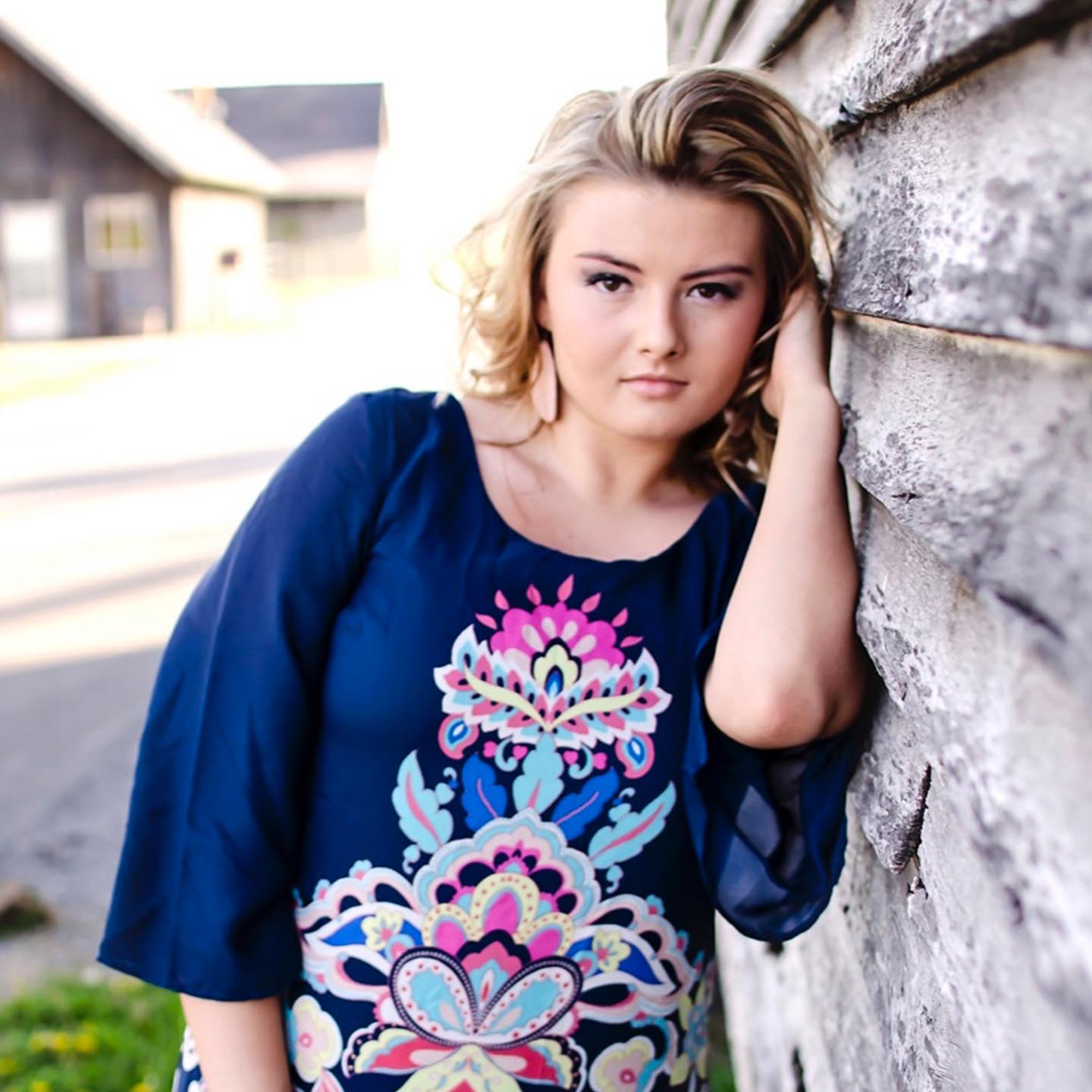
For nearly seven years, Joel and I have been foster parents. Fostering was a calling in our lives. It was our way to help children and families in need in our community. To us, foster parents are meant to be safe havens for children and a support for families. We already had three biological children, and because of foster care, we were able to welcome more children into our family. We keep our children connected to their biological families, and after they physically leave our homes, we stay connected to them as their foster family.
It is impossible to list all of the rewarding parts about fostering a child. Seeing our first placements' biological family become self-sufficient and get their girls back, officially adopting our daughter, and even hearing how we've had a lasting impact on our very first foster daughter's achievements are some of our greatest successes as a foster family. All of these milestones really capture how foster care has changed our lives for the better.
Like any journey in life, foster care has its ups and downs, but we have grown in compassion and patience within ourselves as foster parents, as a couple, as a family, and within our community. We now have five wonderful kids: Danielle, a high school senior who is on the nursing career track; Eli, a seventh grader and basketball star; Noah, a fourth grader and avid chef; Addison, a third grader and caretaker of animals; and Adrian, who holds down the fort at home and is the ultimate Hot Wheels collector.
- Chelsea and Joel Mapanoo
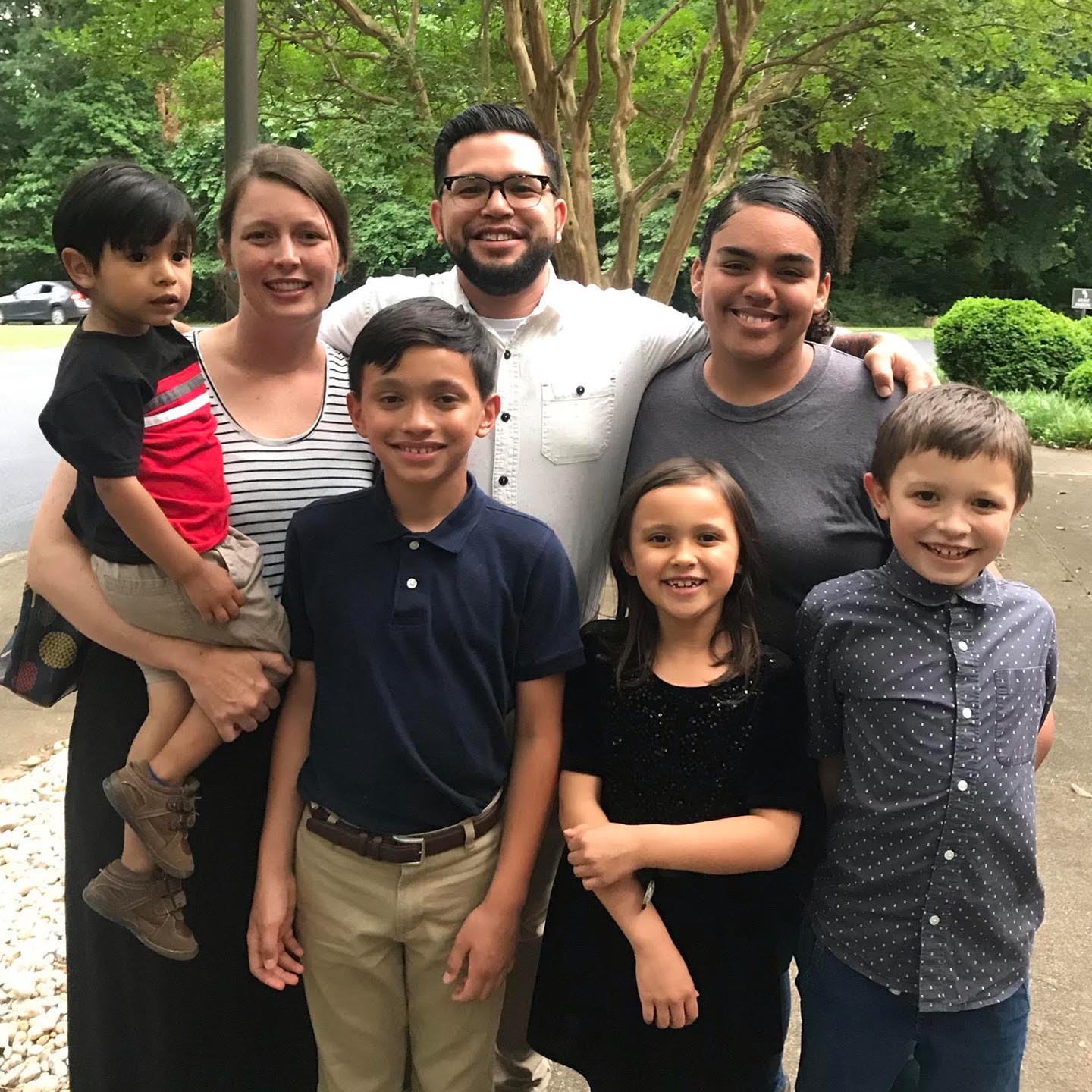
We started our foster care journey in 2008. Our biological children were in high school and we really wanted a little one in the house with us, but our local department of social services needed foster families for teenagers. We really wanted a chance to give back to our community, and looking back, it was the best thing that we could have ever done. We were able to give the kids a new beginning, teach them that you can recover from your mistakes, and help them make decisions that could turn their lives around.
Being a foster parent is not a cookie-cutter experience. Although every child handles the same situations differently, most often these children have been put in situations that require survival tactics. We worked to build trust with our kids. We tried to be supportive and be a listening ear. We saw their attitudes and behaviors grow and change for the better despite others having given up on them in the past. When our kids had an opportunity to make a poor choice, they learned to make the right one. We watched them put forth effort. There was joy in watching our children achieve goals that social services set for them, as well as the ones that they set for themselves.
My husband of 23 years, Seaver, and I have four children: Tyquan (29), TeQuante (27), Adiva (24), and Marquis (16). My kids come over during the holidays and their kids call me grandma. They call to ask for recipes or for help with financial aid forms. Our success as a family comes from ensuring that support comes while they are at home with me and long after they start their own families. My foster family is my forever family.
- Theresa & Seaver McKensie
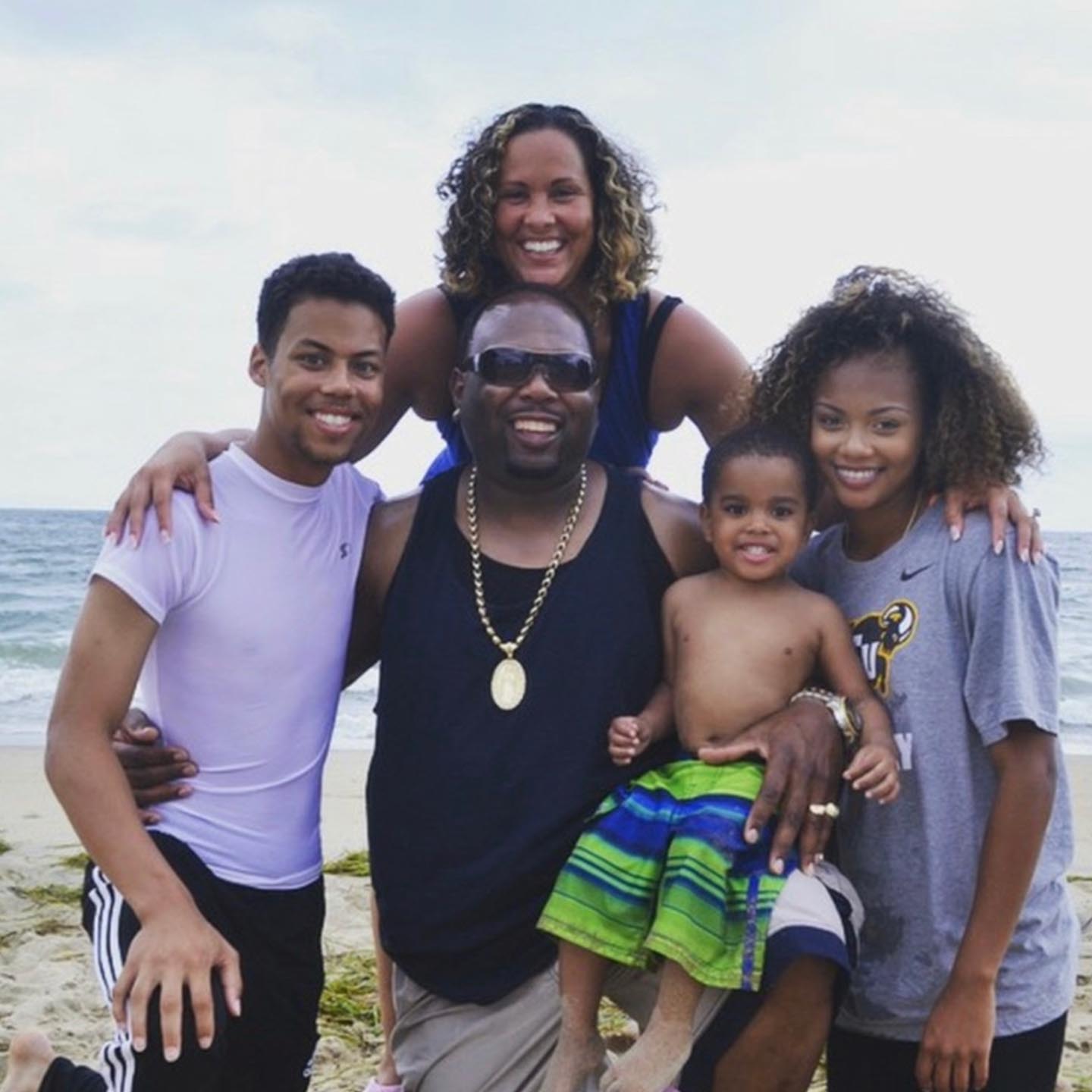
I will never forget walking out of the hospital four years ago, holding an infant carrier with a premature baby girl fast asleep in it - our very first foster care placement. The feelings of fear, anticipation, and gratefulness to be able to help were all swirling around in my head. This year, our family welcomed our fourth placement, and the feelings from that first day outside the hospital have remained the same.
Our foster care journey began when our youngest of four was 3 years old and my husband and I began a foster parent training course through Community Attention Foster Families in Charlottesville, Virginia. I am a stay-at-home mom and we have space in our home for another child, so we open our home to children in our community who need a safe place. Our family values every life and deeply believes that everyone deserves a second chance. We have found great joy not only in providing a home for our four foster children, but also in embracing their families as they seek help and work to bring health to their family.
One of our placements, a 2-year-old little boy, lived with us for 14 months. He was reunited with his family about two years ago. After the judge granted reunification, the biological dad turned to me and said, "We did it!" It was a gift to us to be able to provide a loving home for our foster son while being able to cheer on his dad as he worked tirelessly to bring his family back together. We were a team working together with the end goal of reunifying the children with their families. My husband and I try to openly communicate to our foster children's parents that we are not seeking to adopt their child, or be better parents to them; instead, we are caring for their child until their family can be made whole again. The reality is that, in this world, we all struggle and need support. We have been so grateful to walk alongside these families to work together for the sake of a safer, more secure life for the children.
Every new placement brings out fear and anticipation. At the beginning, you ask yourself, "What will this situation be like? How will the parents view our role in this? What challenges will we face? What is the child like? How will this affect my family?" I started out fostering as a means of helping children in need, but I have learned just how important it is to put myself in the biological parents' shoes. Assuring them that their child is safe with us until they can return home is important to me. After our foster children have been reunified with their family, the only feeling that remains with me is gratitude. I am grateful to have helped. I am grateful to have been a part of the healing and a part of the journey to bringing children safely back home, where they are meant to be.
- Katy & David Shonka
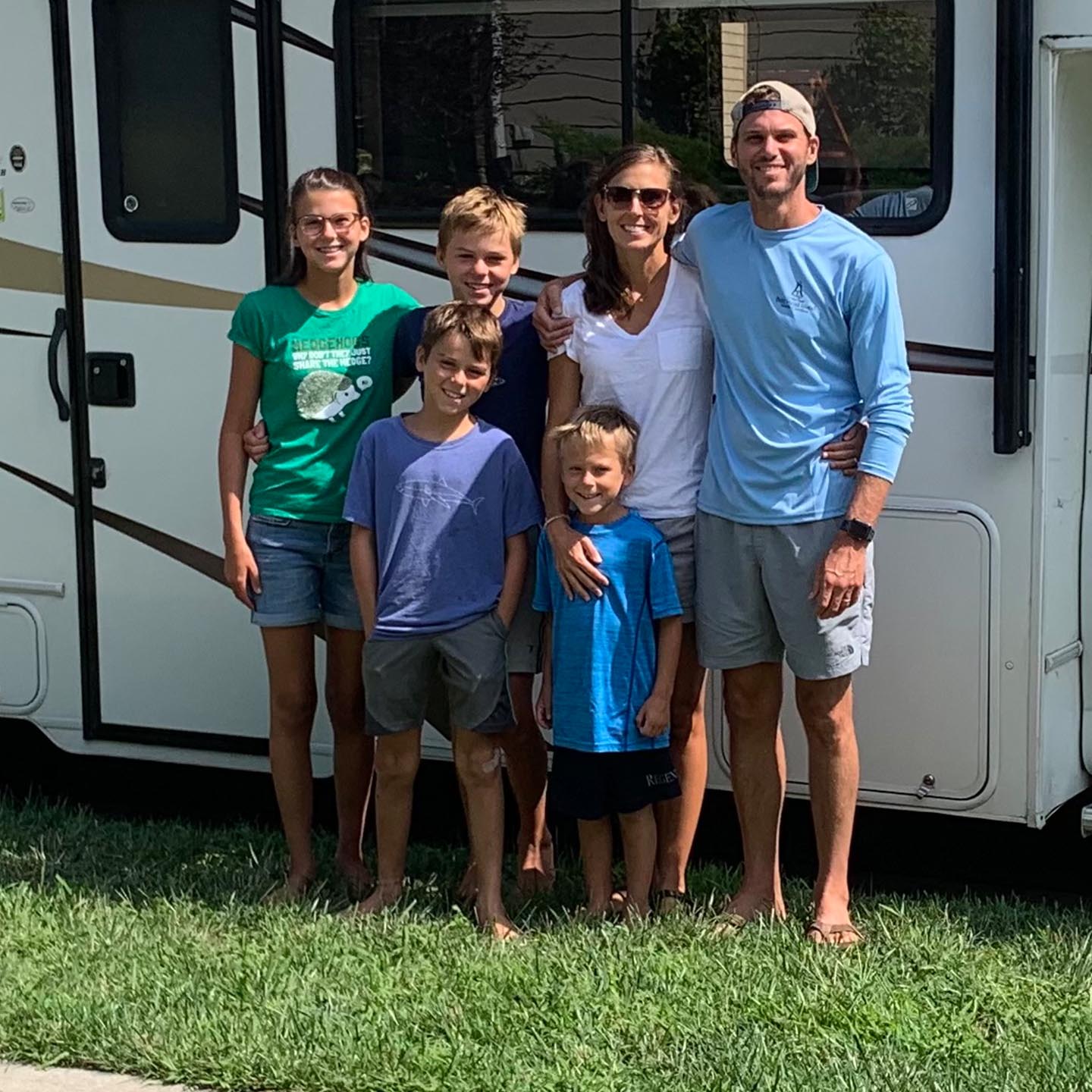
We first began our foster care journey out of an abundant love for children and a longing to help our community. Being able to actually reach the children that come into our home, no matter what condition they enter in, has been the greatest reward of our foster care journey. Each year thus far, we have the joy of seeing each child in our care blossom. This month, we will celebrate the nineteenth year of our foster parent journey. We will be celebrating our foster family journey together as a family of twelve: husband, wife, and ten excellent children.
Over the course of our foster care journey, the most important lesson for us has been to keep an open mind. We have built a routine together by participating in church, school, and extracurricular and community activities. Day-by-day, we emphasize to our children the importance of connecting - with each other, and with their families. Fostering is not always easy, but it is always worth it to see our children overcome, excel, and dream. It has been a daily commitment to loving each child, to communicating, to being patient, and to providing them with stability and guidance.
Our first foster son had a life-long dream to become a U.S. Marine and we watched him turn that dream into a goal. As of last year, he is an officer in the U.S. Marine Corps. While his success story may be different from another child, because every child has different needs, different goals and different personalities, it is important to remember that they are capable of overcoming any obstacle if given the support to grow into the individual that they were meant to be.
- Smith Family
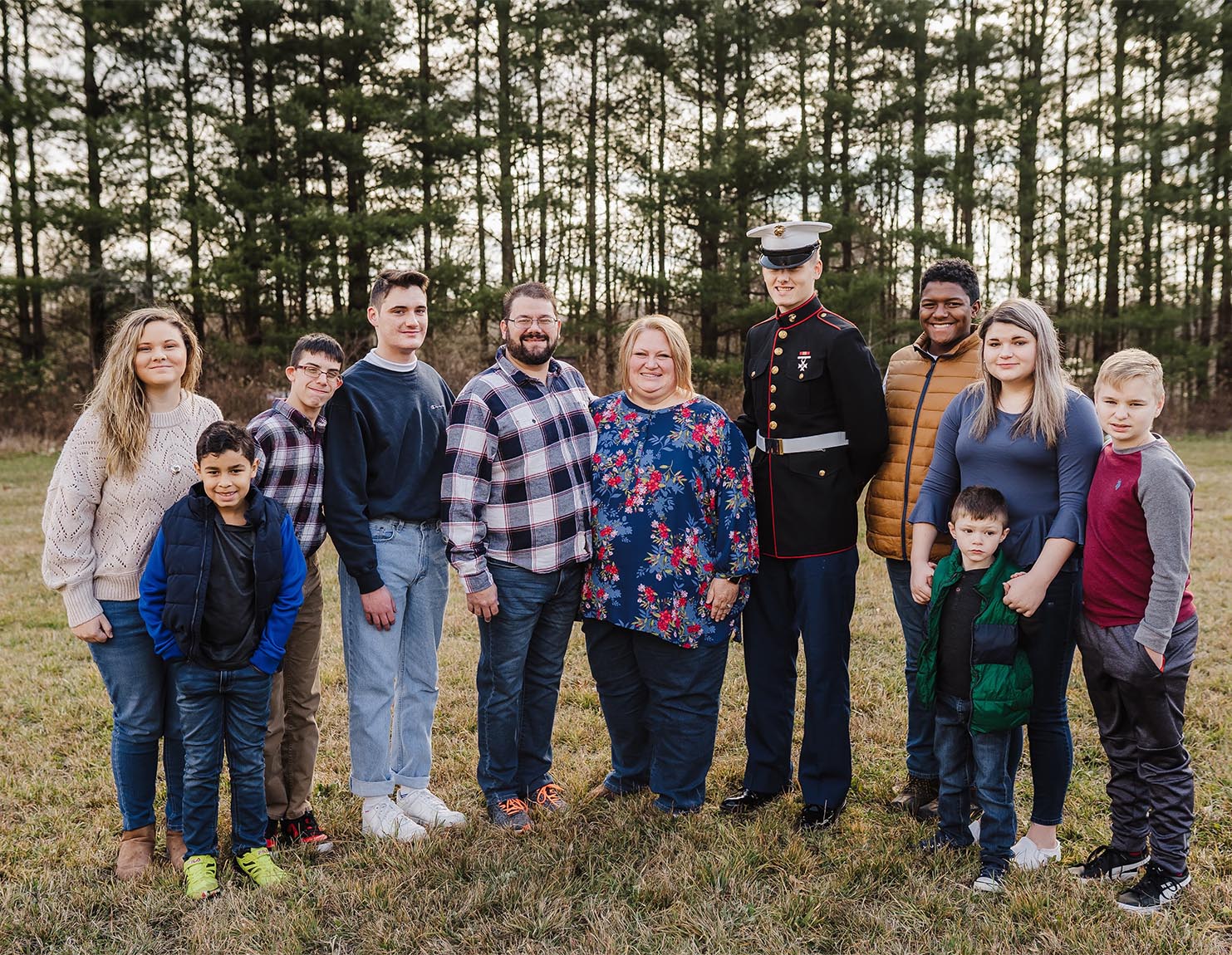
From the beginning, our caseworker and foster family were supportive of the reunification process. Both were very involved, caring, and attentive to our needs as we worked to reunite our family. Our caseworker made us aware of various programs and resources that we took advantage of, including individual and family therapy, parenting classes geared towards kids who experienced trauma, and personalized mentorship programs.
One of the services that made a significant difference in the reunification process was access to transportation. Due to my mentor's efforts in finding us a means of transportation, I was able to make appointments, take care of errands, and seek assistance from other programs, like the Network to Work program from Piedmont Virginia Community College. I was also able to attend financial family planning seminars and professional development classes to better prepare for employment opportunities and interviews! Our children also had mentors that they interacted with, including quality engagement time and tutoring.
Our caseworker kept us informed of every family planning meeting, so we were never confused about anything in the process. Because of the supportive people and services, our family stayed on track with the reunification process, addressed the challenges, and was permanently reunited!
Now, we are doing great! I hope every family going through this process takes advantage of every program available and offered. All of the extra knowledge and support that you can get can only help you!
- Casper Family
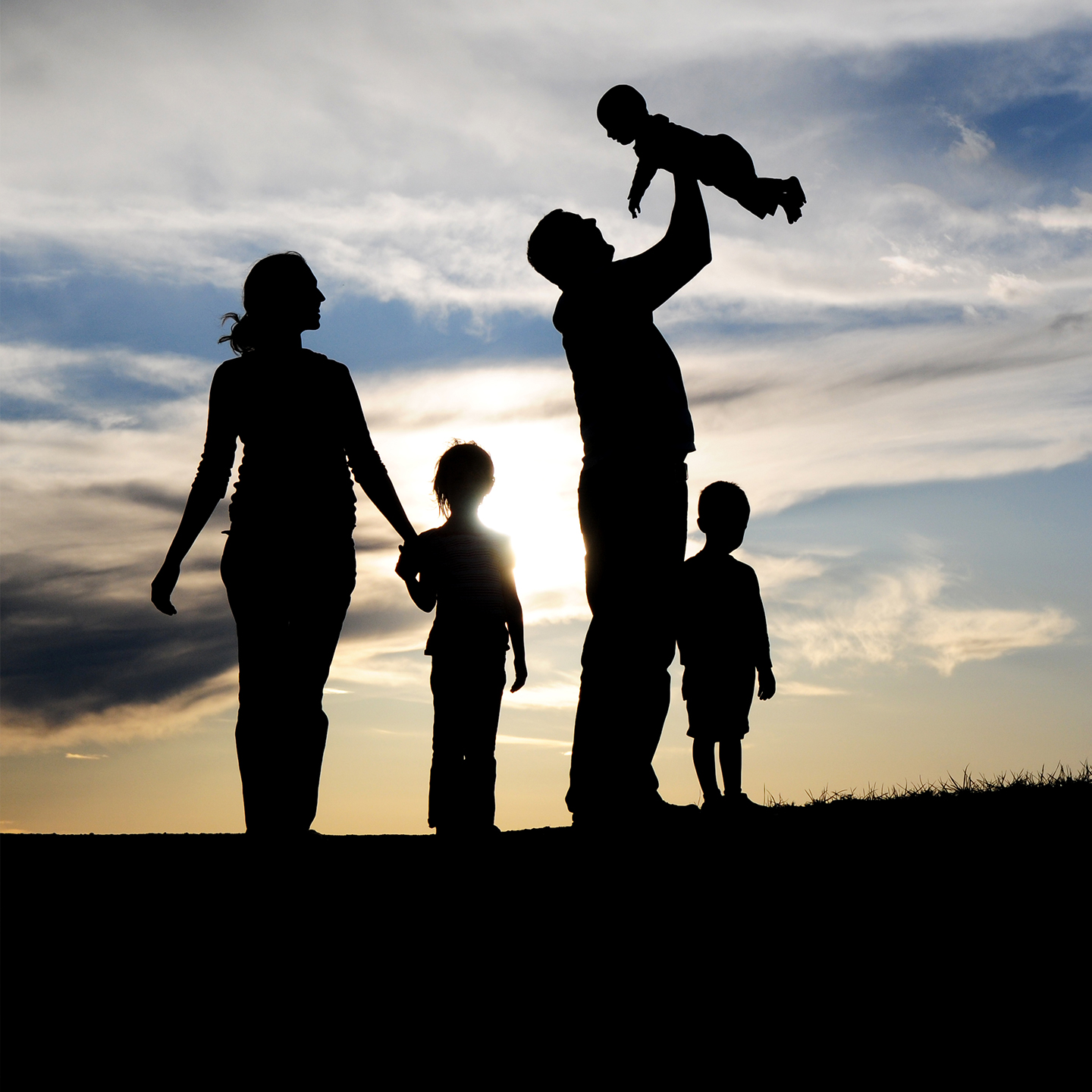
I was a teenager when my struggle with addiction began. It may have been due to an unaddressed trauma and only having negative coping mechanisms, however my drug addiction led to abusing meth and making poor choices for myself and my family. My children were taken into the of social services in October 2020.
Despite the beginning stages being beyond difficult, my local department of social services cheered me on the entire time. Specifically, my caseworker, Cannon Morris, was a huge advocate and source of strength for myself and my family. The resilience my caseworker exhibited inspired me to continue with the program and seek additional help.
I was determined to put myself through a drug rehab program. While I was there, I had a video call with my son and had a flashback to when I was in foster care. I remembered having similar conversations and my mom saying, "I'll see you soon," and it did not happen. From that moment, I decided that I did not want to make false promises to my kids. I wanted my kids back - I wanted ME back.
Through perseverance and hard work, I was reunified with all of my children! I hope to continue sharing my story with others in the community so they know that success can happen. I want other parents going through a similar situation to know that reunification is possible.
- M.W.

In August of 2017, after being homeless for three months, my children were placed into kinship care with their aunt. At times, I was not able to see my kids as I worked through the reunification process and received assistance. I was discouraged and it was not always easy to stay on track, however, I remained vigilant.
As I was adjusting to the program, I was in the process of a trial placement to have my children returned. However, I did make a mistake and wasn't able to regain custody at that time.
During 2020, there were some challenges with visitation and I wasn't able to see or had very limited in-person contact with my kids. At this time, I lost my rights and was faced with the possibility of my children being placed for adoption. I continued to push myself to be as active as possible in their lives despite the challenges. Thankfully, I was given another chance, returned to supervised visits, and into trial placement.
Fast forward to the beginning of 2021, I now have full custody of my children and we are doing great! My children experienced trauma due to being separated, and I am now in the process of getting the services they need to heal and move forward with their lives.
- Williams Family

Two years ago, I made the decision to get involved with drugs. I didn't care about anything else in the world except for my addiction. In June of 2019, I was arrested on multiple warrants and a drug charge possession. Two of my kids entered foster care, and I was unable to see my two other kids who were with their mother. I was completely broken and didn't know what to do.
Things began to look up when I connected with a Veterans Affairs representative. He told me that it would be a good idea if I went through a rehabilitation program. At the time, I was unaware that this was even an option, so I said yes.
When released from jail, I waited for a spot to open at the rehabilitation facility. I was homeless for about two weeks and would sleep on a park bench at a local store, waiting for my spot to open. When my time finally came, I went to a facility at the Veterans Affairs hospital in Richmond and another in Hampton. I spent four months in in-patient rehab trying to get my life together, not only for myself but for my kids.
The program was not easy. I spent a lot of time crying at night, and I was at an all-time low. However, I truly believed that my job was not done until I got my family back, and nothing was getting in my way. It took time, patience, and a lot of work, but eventually, I was able to get a place for myself and my kids. I received custody of my oldest two children, and later my younger two who were in foster care. All of my criminal charges were dropped, and now I have my family back.
- Jonthan S.
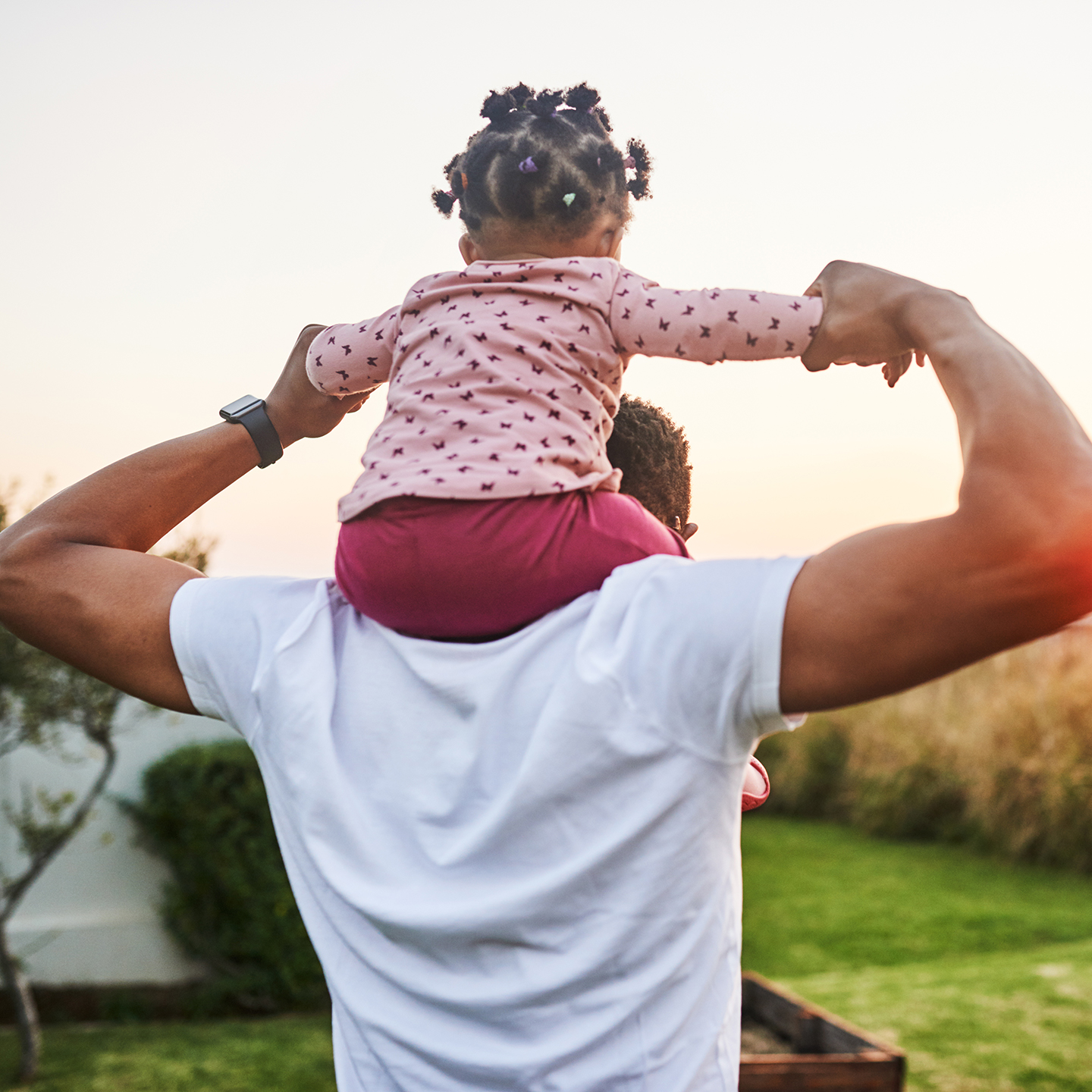
Bridget Sandstrom shares her video testimony of her road to recovery and reunification with her son thanks to help from the department of social services. "Whoever is listening to this, I want you to know it's not over. You can be where I'm at. Keep your head up, keep going - be the success story. I never thought I could do it, and that's where I was wrong. I should have always known I could do it. You can do it, too."
- Sandstrom Family
(deaf or hard-of-hearing):
(800) 828-1120, or 711